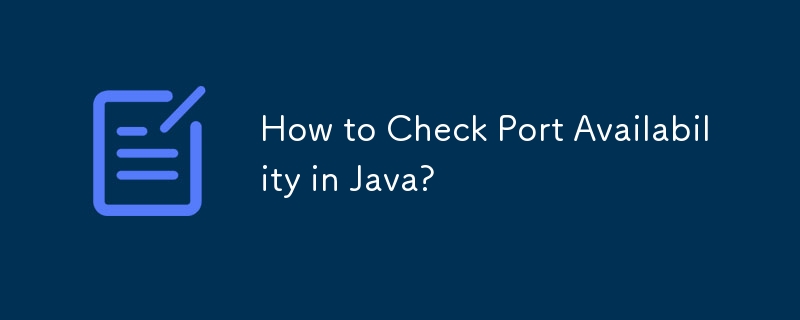

Determining Port Availability in Java
When working with network applications, determining the availability of a specific port is crucial to avoid conflicts and ensure proper communication. In Java, there are several methods to programmatically check port availability:
The Apache Camel project provides an efficient implementation:
<code class="java">public static boolean available(int port) {
if (port < MIN_PORT_NUMBER || port > MAX_PORT_NUMBER) {
throw new IllegalArgumentException("Invalid start port: " + port);
}
ServerSocket ss = null;
DatagramSocket ds = null;
try {
ss = new ServerSocket(port);
ss.setReuseAddress(true);
ds = new DatagramSocket(port);
ds.setReuseAddress(true);
return true;
} catch (IOException e) {
} finally {
if (ds != null) {
ds.close();
}
if (ss != null) {
try {
ss.close();
} catch (IOException e) {
/* should not be thrown */
}
}
}
return false;
}</code>This method verifies the port's availability for both TCP and UDP connections by creating and testing a ServerSocket and a DatagramSocket using the provided port number. If the instantiation is successful, the port is considered available; otherwise, it is unavailable.
The above is the detailed content of How to Check Port Availability in Java?. For more information, please follow other related articles on the PHP Chinese website!
 Windows driver wizard function
Windows driver wizard function
 How to convert pdg files to pdf
How to convert pdg files to pdf
 How to resize pictures in ps
How to resize pictures in ps
 python configure environment variables
python configure environment variables
 What are the software for learning python?
What are the software for learning python?
 Recommended order for learning c++ and c language
Recommended order for learning c++ and c language
 What is javascript mainly used for?
What is javascript mainly used for?
 The difference between large function and max
The difference between large function and max




